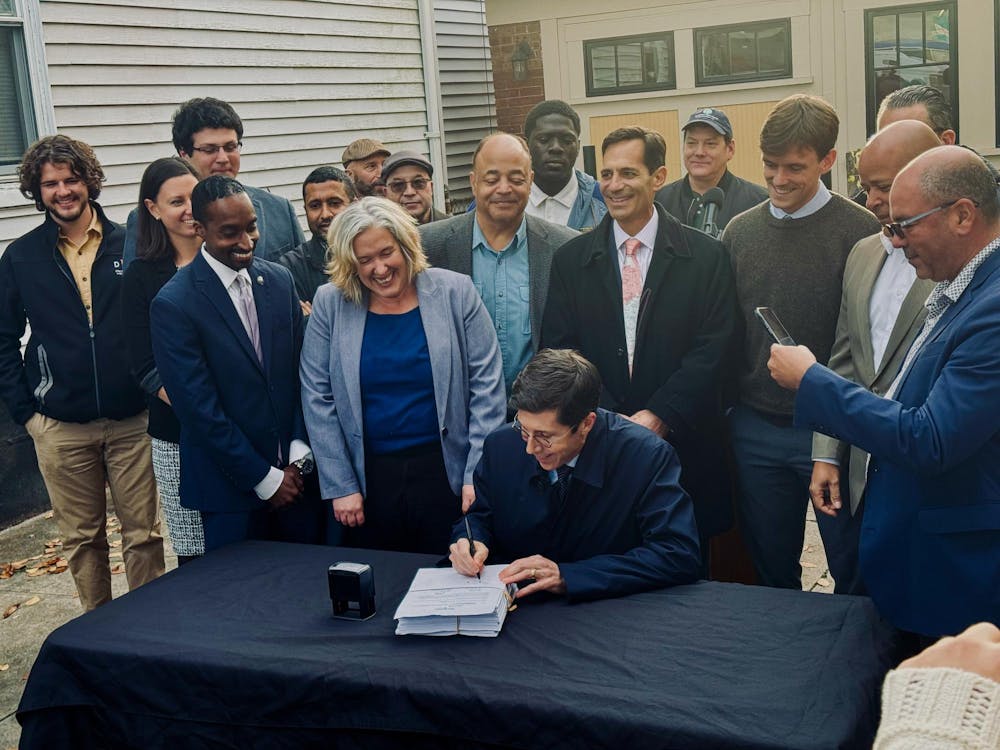On Friday, Mayor Brett Smiley signed Providence’s Comprehensive Plan, a ten-year roadmap for the city.
The plan’s passage comes after months of public meetings across Providence neighborhoods, multiple iterations and a series of negotiations around an amendment which limits the development of new gas stations in the city.
The plan “tackles major issues like the housing and climate crises and provides a blueprint for a vibrant, resilient Providence that offers opportunities for everyone,” Smiley said at the signing event.
Following Smiley’s signing, Providence became the only East Coast city to have passed what amounts to an effective ban on new gas station development. New developments will only be permitted in land deemed “unsuitable for residential development,” the plan states.
“The process can only be successful if there’s a sincere approach to community engagement,” said Robert Azar P’24, the deputy director at the Department of Planning and Development. “It’s a process where we planners bring their expertise to the table, but we also listen to and learn from the many stakeholders that have an interest in making a great city a better place.”
To tackle the housing crisis in the state, the plan makes it “easier to build new housing and mixed-use development in every neighborhood” through allowing accessory dwelling units and “missing middle” housing, which describes residences that fall somewhere between single-family homes and mid-rises, in all Providence residential zones.
The plan also recommends the adoption of an “inclusionary zoning” strategy, which is intended as a way to create more affordable or income-restricted housing. The plan offers financial incentives to developers to create more rental housing in the city.
“We have to make affordability the rule and not the exception,” Miller said.
Many amendments passed also relate to addressing climate change and environmental justice.
“The plan introduces robust goals to improve air quality, mitigate heat and manage stormwater, particularly in frontline neighborhoods disproportionately impacted by the impacts of climate change and pollution,” the press release reads.
The plan also gives the City Council the authority to prohibit fossil fuel-based power plants, toxic chemical storage and manufacturing facilities in the Port of Providence area. These measures were points of contention in public hearings, The Herald previously reported, with some residents saying it didn’t go far enough.
According to Miller, the Providence City Council will continue to work with various stakeholders to “ensure new businesses at the ProvPort are clean, green (and are) providing excellent career opportunities for city residents.”

Avani Ghosh is a Metro editor covering city and state politics. She is a junior from Ohio studying Health and Human Biology and International and Public Affairs. She is an avid earl grey enthusiast and can be found making tea in her free time.





